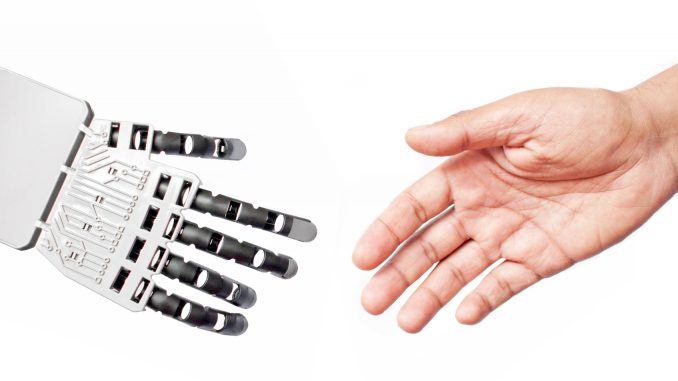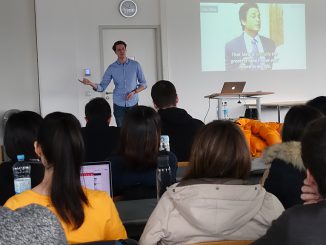
My last article titled “Innovative Wasteland Germany? – Not anymore!” already discussed how “Industry 4.0”, meaning the digitalization of product development and production, will have a significant impact on Germany’s long-term future perspectives. The article mainly treated the cooperation between man and machine, which is already starting to change profoundly. But what exactly are the chances emerging from the so-called fourth industrial revolution – and why is it particularly important for the German industry to push it?
Augmented Reality in product development
The first steps of product development already reveal the future potential of cooperation between man and technology: In the long run, physical prototypes will become a thing of the past, and products will be developed by virtual technologies only. This process will produce digital models and prototypes which allow product designers and testers to literally interact with their creations. This is supported by gadgets of augmented reality, such as 3D glasses with fast movement sensors and gesture control. The wearer of these glasses cannot only eye-scan the virtual room via “head tracking”; he can also control the movements of his hands and fingers in the digital world, which allows interaction with a virtual object. This is highly interesting not only for the games industry; it also gives the production industry a completely new and revolutionary approach to test innovations and to customize novelties according to specific requirements.
The networked factory
The new virtual world, however, does not end at product development. Production processes will also undergo major adjustments. We will see an ever-growing digitalization and automation in the factories: In analogy to their products, production facilities will also be designed by virtual technologies. This will gradually soften the interface between man and product and man and production facilities – and man is becoming a part of the virtual world. This practically implies that machines and robots will act with increasing autonomy, making own decisions and exchanging information – all in cooperation with the worker. Ideally, a state of “cyber-physical equivalence” is reached, where man can flexibly switch between real and virtual level.
Intelligent support for staff
Sceptics fear that the human aspect could be lost in the course of these developments and that man will ultimately be replaced by machines in his work environment. But this is not what it‘s all about. Rather, man will receive enhanced support, as research has demonstrated in the case of exoskeletons. The intention is to make physically straining tasks too complex for automation easier by intelligent machines: In the future, the worker will simply put on a computer-controlled exoskeleton which allows him to easily move heavy loads. In the future, however, it might even become possible to refine control by sensors that receive their input from the human.
The benefits of such man-machine cooperation are obvious: Industrial workers will remain fit for work longer, and absence times due to illness will decrease while product quality is improved.
Production based on specific requirements ensures competitiveness
In sum, cooperation between man and machine will open a multitude of opportunities for Industry 4.0, which could secure Germany’s long-term competitiveness. While Asia is unbeaten in the field of mass production, the German industry should focus on the manufacture of individual and small series products. The new technologies not only allow very well-tailored and fine-tuned product development, they also support highly flexible production solutions by comprehensive cross-linking, rendering even smaller batches profitable. The graduates from our universities, in particular, are open to such concepts and will push them ahead – from research state to industrial maturity. And what looks like vanguard spleens today will have become state-of-the-art technology in a few years.




